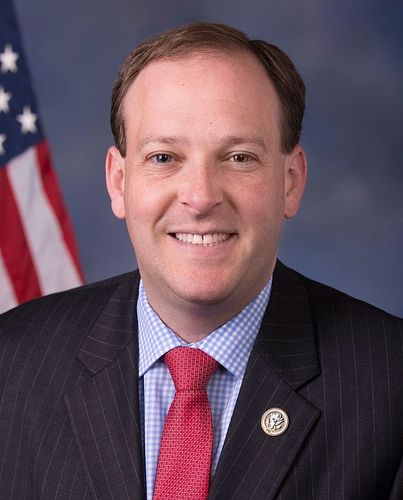Trump to nominate Zeldin to lead the EPA

Lee Zeldin
November 12, 2024
BY Erin Voegele
President-elect Donald Trump on Nov. 11 announced he will nominate Lee Zeldin to serve as administrator of the U.S. EPA. Zeldin previously served as a member of Congress, where he cosponsored legislation to repeal and revise the Renewable Fuel Standard.
Zeldin represented New York’s first congressional district from 2015 to 2023 and ran for governor of New York in 2022. Zeldin also served in the New York State Senate from 2010 through 2014. In addition to his political posts, Zeldin has served in the U.S. armed forces. He served four years on active duty in the U.S. Army and is currently a Lieutenant Colonel in the U.S. Army Reserve.
During his time as a New York Congressmen, Zeldin cosponsored the RFS Reform Act of 2015, the RFS Reform Act of 2017 and the Renewable Fuel Standard Elimination Act.
The RFS Reform Acts of 2015 and 2017 aimed to amend the Clean Air Act to revise the RFS program by decreasing the total volume of renewable fuel that was to be blended into the U.S. fuel supply and requiring the EPA to set the renewable blending obligation (RVO) for cellulosic biofuel based on the actual volume of cellulosic biofuel produced the previous year. The bills also aimed to prevent gasoline containing more than 10% ethanol from being sold and would have nullified existing waivers allowing sales of higher ethanol blends, specifically E15.
Advertisement
The Renewable Fuel Standard Act, introduced in 2017, would have repealed the RFS program in its entirety. None of the three bills were brought to a full vote by the U.S. House of Representatives.
In his statement announcing Zeldin as his pick to lead the EPA, Trump called him a “true fighter for America First policies.”
“He will ensure fair and swift deregulatory decisions that will be enacted in a way to unleash the power of American businesses, while at the same time maintaining the highest environmental standards, including the cleanest air and water on the planet,” Trump wrote in a post published on Truth Social. “He will set new standards on environmental review and maintenance that will allow the United States to grow in a healthy and well-structured way.”
The Renewable Fuels Association and Growth Energy have indicated plans to work with the Trump administration to ensure biofuels continue to benefit the American public.
“We congratulate Mr. Zeldin and look forward to meeting with him to discuss the important role renewable fuels like ethanol can play in bolstering domestic energy security, reducing gas prices, supporting the farm economy, and protecting our clean air and water,” said Geoff Cooper, president and CEO of the RFA. “We are hopeful that President Trump’s EPA will prioritize efficient implementation of the Renewable Fuel Standard, opening the market to higher-octane ethanol blends like E15, and revisiting regulations that force automakers to ramp up production of costly electric vehicles. Our nation’s economic and environmental goals can be achieved by simply empowering greater use of lower-cost, lower-carbon liquid fuels in more affordable internal-combustion-engine vehicles.”
Advertisement
“As Rep. Zeldin moves through the confirmation process, we look forward to discussing how biofuels like ethanol can help unleash American energy dominance and innovation while saving consumers money and maintaining environmental standards,” said Emily Skor, CEO of Growth Energy.
The process to become confirmed to a cabinet position is extensive and includes a hearing before the U.S. Senate. During that hearing, senators will be able to question Zeldin on a wide range of topics, including his plans for the RFS, prior to voting to confirm or reject his nomination.
Related Stories
Editor's note from the Summer 2025 issue of Biodiesel Magazine
Legislation pending in the Illinois legislature aims to create a clean transportation standard (CTS) that would require a 25% reduction in in the lifecycle carbon intensity (CI) of ground transportation fuels within a 10-year period.
A notice published in the Federal Register by the U.S. EPA indicates that far fewer parties than originally anticipated have registered with the agency as biointermediate producers under the Renewable Fuel Standard.
Biomass Magazine has announced the dates for the 19th annual International Biomass Conference & Expo. The event is scheduled to be held March 31-April 2, 2026, in Nashville, Tennessee, at the Gaylord Opryland Resort & Convention Center.
Industry experts weigh in on the status of Canada’s renewable fuels industry and the impact of government policy and regulation.
Upcoming Events










